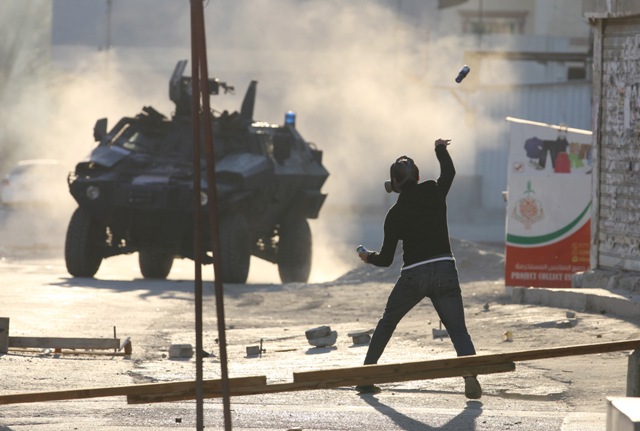The International Press Institute (IPI) today welcomed news that four American journalists detained on Sunday in Bahrain while covering protests have been released, but it condemned authorities’ decision to charge them with “illegal gathering” and to deport them.
Award-winning freelance journalist Anna Therese Day and her three-person camera crew were arrested while reporting on clashes between security forces and protestors in the predominantly Shiite Muslim town of Sitra marking the fifth anniversary of a failed uprising seeking greater rights for Shias.
A local source who reported having met with the journalists following their release said that they were expected to be deported to Dubai within hours.
The Guardian reported that a police said that one member of the group was “masked” and took part “in acts of rioting and sabotage and attacks on security officials”. Following the detention of that individual, police indicated, the other three were arrested at a nearby security checkpoint. Police also claimed that the four journalists, who entered Bahrain between Feb. 11 and 12, “provided false information to concerned authorities” by claiming to be tourists.
However, Day’s family rejected those claims, saying through a spokesperson: “The allegation that they were in any way involved in illegal behaviour or anything other than journalistic activities is impossible.”
IPI Director of Advocacy and Communications Steven M. Ellis welcomed news of the journalists’ release, but he criticized their detention and the charges levied against them.
“While we are happy these journalists are no longer behind bars, Bahraini officials’ decisions to detain them, charge them with a crime for covering breaking news of legitimate public interest and then deport them represent the latest in a series of blows to press freedom and human rights in the Kingdom,” he said. “We urge authorities to stop punishing journalists and human rights defenders for seeking to uphold Bahrainis’ ability to exercise their rights and know what is happening in their country.”
Sunday’s protests came on the anniversary of a February 2011 uprising that began at Manama’s Pearl Roundabout. Demonstrations demanding greater political freedom for the Kingdom’s majority Shia population were crushed the following month with the support of troops from Saudi Arabia and the United Arab Emirates after protestors called for an end to the reign of King Hamad bin Isa Al Khalifa.
The crackdown led to a three-month state of martial law and included a wave of repression and censorship that targeted cyber activists and online platforms used to organise demonstrations, such as Facebook.
Those affected include prominent human rights defender Nabeel Rajab, who has faced a campaign of judicial harassment since 2011. As IPI noted last week, Rajab currently faces a travel ban as the result of his activities, which has prevented him from joining IPI’s March 19 to 21 World Congress in neighbouring Doha, Qatar. Rajab is scheduled to join the Congress as a speaker via Skype.



